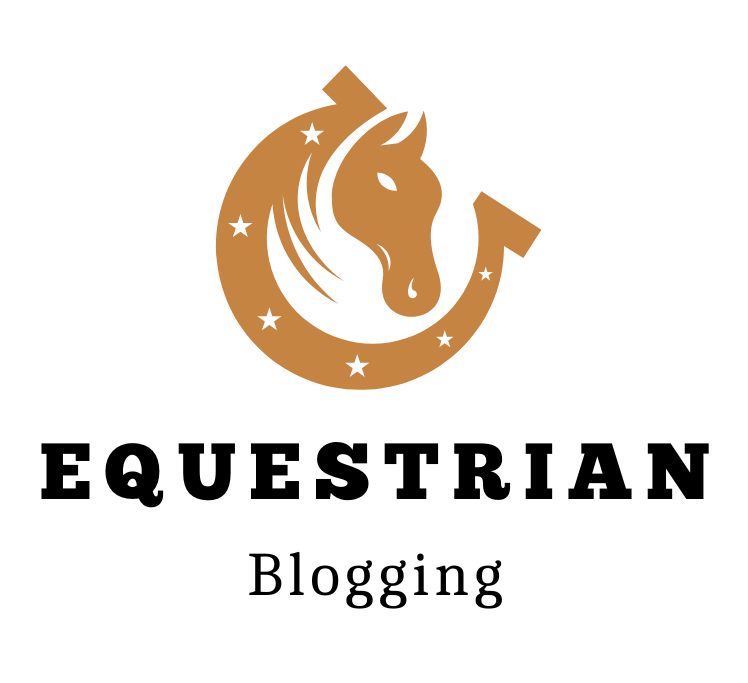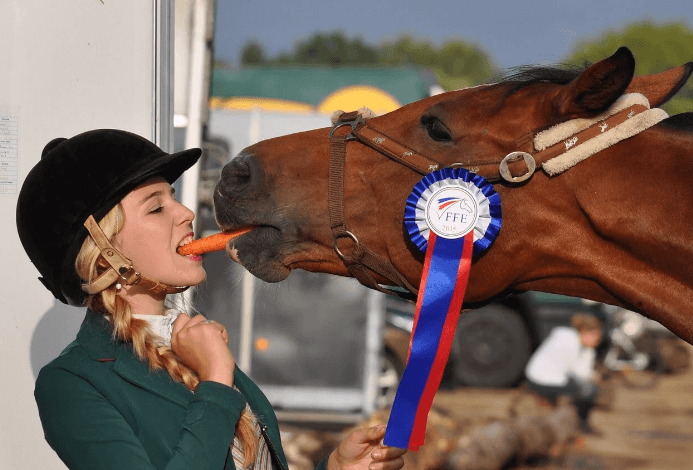Horses can eat celery, as it provides nutritional value and they enjoy its crunchiness and taste. Celery is safe for horses to consume, along with other vegetables such as carrots, pumpkin, cucumber, parsnip, and zucchini.
These vegetables are a good source of vitamins and can be added to a horse’s diet. However, it’s important to ensure that the horse’s diet is balanced and includes other essential components. Feeding horses a variety of fruits and vegetables can be beneficial, but certain vegetables, like those in the nightshade family, should be avoided.
The overall health and dietary needs of the horse should be taken into consideration when incorporating celery or any other vegetables into their diet.

Exploring The Feasibility Of Feeding Celery To Horses
When it comes to feeding horses, it’s important to consider their dietary needs and the potential impact of different foods on their health. One vegetable that often sparks curiosity is celery. Known for its crunchy texture and hydrating properties, celery seems like a healthy choice. But can horses have celery? Let’s dive into the nutritional value, safe vegetables for horses, and the potential risks of feeding celery.
Nutritional Value
Celery, both the stalks and leaves, carries notable nutritional value beneficial to most horses. This vegetable is rich in vitamins and minerals, including Vitamin A, Vitamin K, potassium, and folate. Additionally, celery provides dietary fiber, which aids in digestion and supports overall gut health.
Safe Vegetables For Horses
In addition to celery, several other vegetables are safe and healthy for horses to consume. These include:
- Carrots: High in Vitamin A, carrots make for a tasty and nutritious treat for horses.
- Pumpkin: Rich in fiber and antioxidants, pumpkin can be a great addition to a horse’s diet.
- Cucumber: With a high water content, cucumbers help keep horses hydrated.
- Parsnip: A good source of Vitamin C and dietary fiber, parsnips can be beneficial for horses.
- Zucchini: Low in calories and high in water content, zucchini is a suitable vegetable for horses.
Potential Risks Of Feeding Celery
While celery is generally safe for horses, it’s important to consider the potential risks associated with feeding this vegetable. One particular concern is the high water content in celery, which can contribute to loose stools or diarrhea if consumed in excessive amounts. Additionally, horses with certain health conditions, such as metabolic syndrome or Cushing’s disease, may need to limit their intake of high-sugar vegetables like celery.
It’s crucial to introduce new foods like celery gradually into a horse’s diet and monitor their response. If any digestive issues or adverse reactions occur, it’s best to consult with a veterinarian.

Understanding Horses’ Dietary Needs
Horses are herbivores, which means their natural diet consists mainly of grasses and plants. Understanding a horse’s dietary needs is crucial to ensuring their overall health and well-being. In this section, we will explore their natural diet, the impact of carrots and fruits, and the essentials of a balanced diet.
Natural Diet
A horse’s natural diet primarily consists of grazing on grass and consuming plants found in their environment. Their digestive system is designed to process high-fiber forage, such as grass, hay, and other plant materials. This is why it is important to provide your horse with ample access to quality pasture or hay.
Here are some key points to consider regarding a horse’s natural diet:
- Horses have a relatively small stomach, so they are adapted to eating small amounts of food frequently throughout the day.
- They rely on a steady intake of fiber to maintain proper digestion and gut function.
- Grass is the most natural and beneficial food for horses, as it provides the necessary nutrients and roughage.
Impact Of Carrots And Fruits
Carrots and fruits like apples and bananas are often considered as treats for horses. While these can be given in moderation, it is important to understand their impact on a horse’s diet.
Here are a few things to keep in mind:
- Carrots and fruits are high in sugar content, so they should be given sparingly to prevent digestive issues and potential weight gain.
- Feeding excessive amounts of carrots or fruits can lead to colic or laminitis, especially for horses with certain metabolic disorders.
- It’s essential to monitor your horse’s intake of sugary treats and ensure they receive a balanced diet alongside.
Balanced Diet Essentials
A balanced diet for horses is crucial to maintaining optimal health and performance. It should consist of a combination of forage, such as hay or pasture, as well as concentrated feeds that provide essential nutrients.
Here are some key essentials to consider for a horse’s balanced diet:
- High-quality forage should be the foundation of a horse’s diet, providing adequate fiber and roughage.
- Concentrated feeds, such as grains or pellets, should be carefully chosen and balanced based on the horse’s age, activity level, and specific dietary needs.
- Supplements may be necessary to ensure your horse receives all the required vitamins and minerals, but it’s essential to consult with a veterinarian or equine nutritionist before adding supplements to their diet.
Remember, each horse is unique, and their dietary needs may vary. It is important to consult with a professional to create a customized diet plan that meets your horse’s specific requirements.
Incorporating Celery Into Horses’ Nutrition
Sure, horses can safely eat celery. Both the stalks and leaves provide beneficial nutrients and a crunchy texture that most horses enjoy. Celery can be a good addition to a horse’s diet, but it should not replace other essential components such as balanced concentrates and hay.
Moderation Is Key
When offering celery to your horses, it’s essential to do so in moderation. Excessive consumption of celery can lead to digestive upset, as well as potential choking hazards due to its fibrous nature. A recommended serving size for a horse ranges from 1 to 2 stalks, cut into manageable pieces, a few times per week to avoid any adverse effects. Remember, moderation is the key to incorporating celery into your horse’s diet.
Benefits Of Celery Consumption
Celery offers various benefits for horses when consumed in appropriate quantities. It is a low-calorie treat that can aid in keeping the horse’s weight in check. Moreover, the crisp texture and high fiber content of celery can help promote healthy dental habits in horses, as the act of chewing celery can lessen tartar build-up and promote saliva production, thus supporting digestive health.
Alternative Treats
Aside from celery, there are other alternative treats that can be included in a horse’s diet. These include carrots, apples, and bananas, which are rich in essential nutrients and fairly safe for equine consumption. It’s important to remember that any treats should be given in moderation and as part of a balanced diet, ensuring that the overall nutritional requirements of the horse are met.
Expert Opinions And Perspectives
Horses can indeed have celery, as both the stalks and leaves offer nutritional benefits. Not only do they enjoy the crunchiness and taste, but celery also provides valuable vitamins for their diet. However, it is important to remember that celery should not replace other essential components in a horse’s balanced diet.
Veterinarian Insights
Horses enjoy celery as it offers beneficial nutritional value while providing a crunchy treat. However, veterinarians caution that there is a risk of choking associated with feeding celery to horses.
Experienced Horse Owners’ Views
Experienced horse owners often include celery in their horses’ diet as a wholesome snack option. They emphasize the importance of monitoring horses while consuming celery to prevent any choking incidents.
Research Findings
- Celery is considered safe for horses in moderation.
- It provides essential nutrients such as vitamins and minerals.
- Research suggests that celery can be a healthy addition to a horse’s diet when fed responsibly.
Conclusion And Recommendations
Horses can safely consume celery, as both the stalks and leaves provide nutritional benefits and are enjoyed by them. However, it should not replace other essential components in a horse’s diet, and balanced concentrates and high-quality feed should still be provided.
Balancing Treats And Regular Diet
Horses can enjoy celery as a tasty and nutritious treat, but it’s crucial to balance these treats with their regular diet for optimal health.
Effective Feeding Practices
When feeding celery or any treats, ensure they are given in moderation to prevent digestive issues and maintain a well-rounded diet for your horse.
Considering Individual Horse’s Health
Each horse has unique dietary needs, so consult with a veterinarian to ensure that introducing celery or any new foods aligns with your horse’s health requirements.


Frequently Asked Questions Of Can Horses Have Celery
Can Horses Eat Fresh Celery?
Yes, most horses can eat fresh celery, as it provides nutritional benefits and they enjoy the crunchiness and taste.
Can Horses Eat Celery And Cucumber?
Yes, horses can eat celery and cucumber in moderation as safe vegetable options in their diet.
Are There Any Vegetables Horses Can’t Eat?
Horses can’t eat some vegetables like cruciferous veggies (bok choy, broccoli) and nightshades (cabbage, cauliflower).
Why Can’t Horses Eat Carrots?
Carrots have high sugar content that can lead to colic or laminitis in horses.
Conclusion
Horses can enjoy celery in moderation as it holds nutritional value and is safe for most horses. Whilst feeding celery, owners should remain mindful of moderation and not replace essential components of the horse’s diet. It is a healthy snack option that can provide essential nutrients, along with other suitable fruits and vegetables.

